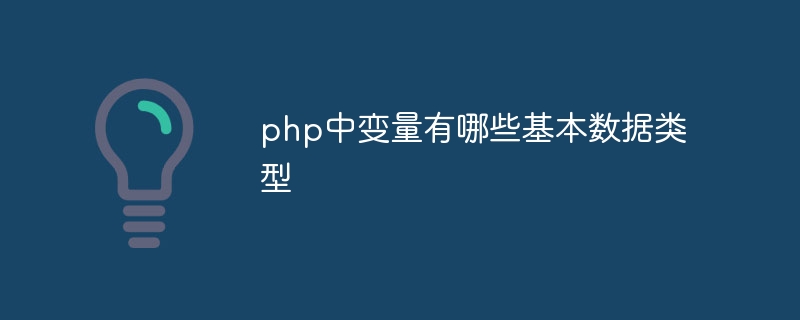Home >Backend Development >PHP Tutorial >What are the basic data types of variables in php
What are the basic data types of variables in php
- 下次还敢Original
- 2024-04-27 10:06:21762browse
PHP contains the following basic data types: 1. Integer (storage of integers); 2. Floating point number (storage of decimals); 3. String (storage of text); 4. Array (storage of collections of elements); 5 . Boolean value (storage logical value); 6. Object (storage complex data structure); 7. Resource (referencing external resources); 8. NULL (representing a null value).

Basic data types in PHP
The PHP language contains several basic data types, which are used for storage and manipulate different types of data. Basic data types include:
1. Integer (integer)
- is used to store integers, including positive numbers, negative numbers and zero.
- For example: 10, -5, 0
2. Floating point number (float)
- is used to store decimals or Double precision number.
- For example: 3.14, -1.23, 0.0
3. String
- is used to store text data , consisting of one or more characters.
- For example: "Hello World", "123", ""
4. Array(array)
- Use For storing a collection of elements, each element can be any type of data.
- For example: ["apple", "banana", "cherry"]
5. Boolean value (boolean)
- Used to store logical values, there are only two types: true or false.
- For example: true, false
6. Object
- is used to store complex data structures, including attributes and methods.
- For example: Class instantiation object
7. Resource
- is used to represent references to external resources , such as a database connection or file handle.
8. NULL
- is used to represent a null value or a non-existent value.
The above is the detailed content of What are the basic data types of variables in php. For more information, please follow other related articles on the PHP Chinese website!

